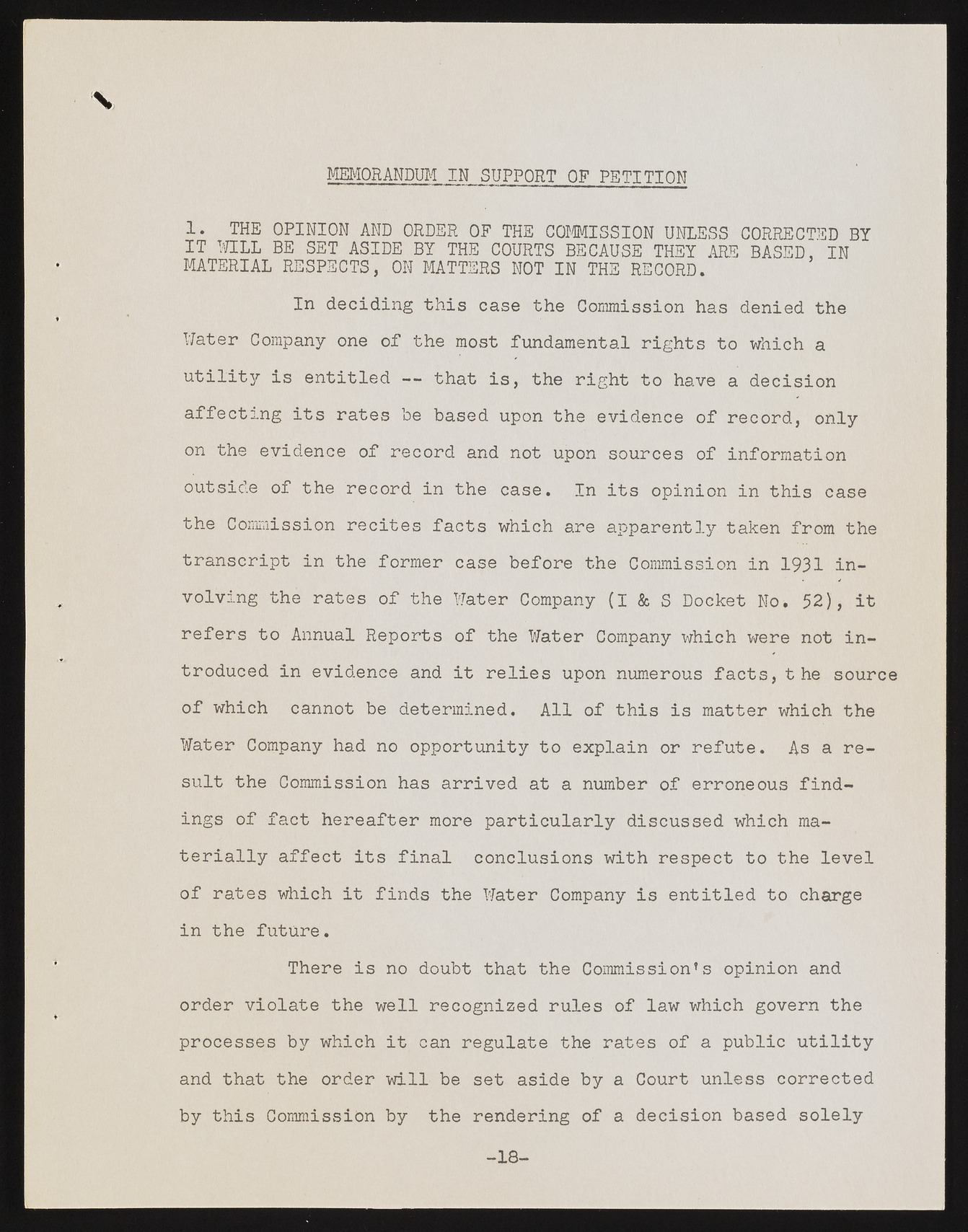Copyright & Fair-use Agreement
UNLV Special Collections provides copies of materials to facilitate private study, scholarship, or research. Material not in the public domain may be used according to fair use of copyrighted materials as defined by copyright law. Please cite us.
Please note that UNLV may not own the copyright to these materials and cannot provide permission to publish or distribute materials when UNLV is not the copyright holder. The user is solely responsible for determining the copyright status of materials and obtaining permission to use material from the copyright holder and for determining whether any permissions relating to any other rights are necessary for the intended use, and for obtaining all required permissions beyond that allowed by fair use.
Read more about our reproduction and use policy.
I agree.Information
Digital ID
Permalink
Details
More Info
Rights
Digital Provenance
Publisher
Transcription
V MEMORANDUM IN SUPPORT OF PETITION 1. THE OPINION AND ORDER OF THE COMISSION UNLESS CORRECTED BY IT WILL BE SET ASIDE BY THE COURTS BECAUSE THEY ARE BASED, IN MATERIAL RESPECTS, ON MATTERS NOT IN THE RECORD. In deciding this case the Commission has denied the Water Company one of the most fundamental rights to which a utility is entitled — that is, the right to have a decision affecting its rates be based upon the evidence of record, only on the evidence of record and not upon sources of information outside of the record in the case. In its opinion in this case the Commission recites facts which are apparently taken from the transcript in the former case before the Commission in 1931 involving the rates of the Water Company (I & S Docket No. 52), it refers to Annual Reports of the Water Company which were not introduced in evidence and it relies upon numerous facts, the source of which cannot be determined. All of this is matter which the Water Company had no opportunity to explain or refute. As a result the Commission has arrived at a number of erroneous findings of fact hereafter more particularly discussed which materially affect its final conclusions with respect to the level of rates which it finds the Water Company is entitled to charge in the future. There is no doubt that the Commission’s opinion and order violate the well recognized rules of law which govern the processes by which it can regulate the rates of a public utility and that the order will be set aside by a Court unless corrected by this Commission by the rendering of a decision based solely - 1 8 -

